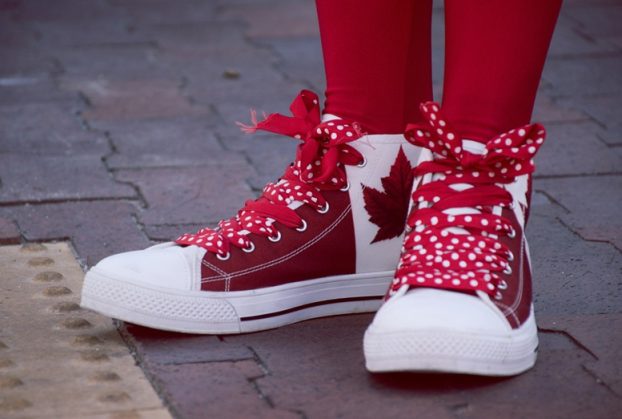Molson Breweries of Canada is hoping to do what marketing giants Nike and ibm have done: emphasize the company’s corporate brand and give it meaning.
The company has dusted off ‘What beer’s all about,’ the Molson Canadian tag line used before ‘I Am,’ and brought it back as the wordmark to tie its portfolio of brands together.
Daryl Ralph, manager of corporate trademark and business development for Molson, says ‘What beer’s all about’ will be used in corporate communications, sponsorship marketing such as the Molson Indy and for promotions such as Molson Canadian Rocks and Molson ExSports.
He says it will also be seen at Molson venues such as the Molson Amphitheatre, Molson Place and Maple Leaf Gardens in Toronto and Molson Park in Barrie, Ont.
While the line will appear on secondary packaging for Molson brands, it will not appear on bottles, cans or be used in a dual branding strategy for individual brands.
In the Quebec market, Ralph says a different wordmark is being developed because ‘What beer’s all about’ d’es not have the same sentiment or meaning.
Ralph says combining a trademark that’s been around for more than 200 years with the new wordmark sends the message that Molson is back to focusing on beer and the reasons for drinking beer.
Longer-term, he says when consumers think about drinking beer they’re going to think about Molson.
‘If you step outside of beer, all great consumer-driven companies have recognized trademarks and a single meaning.
‘For example, Nike and its swoosh icon stands for empowerment. If it’s ibm it might be information; Mercedes, excellence in engineering; for Volvo, it’s safety.
‘All are well-recognized trademarks with a single focus so the consumer knows exactly what the trademark means.’
Ralph says a strong corporate image with the combination of trademark and wordmark allows Molson to be diverse within its portfolio of brands and encourage greater brand loyalty with consumers.
He says the objective is to keep the beer drinker within the Molson portfolio so as the occasion, or consumer needs, change over time, they have the opportunity to move between Molson brands.
‘Brewers typically focus on building brands versus building companies or corporate trademarks,’ says Ralph.
‘A corporate trademark allows you to jump between brands. It’s sort of the ribbon around the entire portfolio and you can move throughout the portfolio as a result of having a strong corporate trademark.’
Molson’s major competitor, Labatt Breweries of Canada, introduced its own umbrella theme ‘Good things brewing’ in 1994.
Bob Chant, Labatt director of public relations, says the Labatt theme line was introduced at a time when the company had also started to refocus on brewing and its heritage.
‘We wanted a very approachable, friendly kind of tag or positioning for the company that hadn’t existed before and one that didn’t take ourselves too seriously.
‘We were refocusing on brewing and it enabled us to tie it all together where in the past things might have been rather isolated and independent and specifically brand driven.’
‘This is really a reflection of pride in ourselves and what we do. It’s a rallying point for the employees as well.’
Chant says the use of a corporate theme line has been very successful for Labatt.
He says has consumer awareness of Labatt’s corporate brand has improved tremendously in the last three-and-a-half to four years.
In addition, the increase in the level of awareness of the tag line and the Labatt script logo introduced around the same time has also been dramatic.
Chant says the company will continue to use ‘Good things brewing’ but the awareness level is at a point where it will be used a little more selectively than when first introduced.
The focus on the Molson corporate brand comes at a time when the brewery seems to have rediscovered a focus and aggressiveness that had been missing for the past few years.
The brewery has taken a much more combative stand against rival Labatt and has launched misleading advertising and other legal challenges against its competitor this year.
Price cuts introduced by Labatt this summer in Ontario to celebrate its 150th anniversary prompted some one-upmanship from Molson, which cut the price of its core brands even deeper.
After the first three-week round of price cuts, Molson reported that sales of its core and licensed brands netted it 52% of Ontario sales while Labatt’s share was 41%.
Molson is also being much more aggressive with its advertising efforts and has begun to more clearly differentiate its individual beer brands from one another.
Molson Canadian and Export, for example, which had been more closely aligned in the past, have now staked out quite different identities.
Canadian is now identified with good times, hence its Molson Canadian Rocks concert and entertainment events. Export is taking a very male, sports-oriented stance and has adopted ExSports as the promotional banner for sports related marketing and events.
Parent company Molson Companies Ltd. also seems to want to get back to its roots as a brewer. It sold off its chemical unit Diversey Corp. last year and is now rumored to want to sell the Beaver Lumber chain and its 25% stake in Home Depot Canada.























